Some housekeeping
First, last week’s genetic analysis workshop was a great success! A much bigger turnout than I was anticipating. But we got through it all together and a nice little slack group has started to share tips. I’m looking forward to doing more of this in the future. If it wasn’t enough notice for this first run, you’ll have another shot soon.
My most recent podcast was with John Hawks. We’ve known each other for 15 years, so it was easy to talk for an hour and a half. Topics included:
How an English major become a paleoanthropologist
What drew him into genetics
What being a proponent of Neanderthal admixture in the aughts was like
How many human species were there 200,000 years ago?
Does he have it in for David Reich?
Books! Books! Books!
Over the years I’ve maintained a steady diet of books, but only some have deeply influenced me and reshaped my thinking. Below are fifteen works across various fields that have left the deepest imprint upon how I look at the world and think about it.
In The Fall of Rome, Bryan Ward-Perkins makes the definitive case that the Roman Empire collapsed. Ward-Perkins does not deploy novel interpretations of texts. The argument draws power from archaeological analysis of material remains.
Daniel Hartl and Andrew Clark, two eminent population geneticists, wrote the seminal text within the field in the 20th century (and now holding strong into the 21st). Principles of Population Genetics is the sort of book you actually read cover to cover and then read cover to cover again. The math is not difficult, but the logic and mode of thinking may seem abstruse. Hartl and Clark offer a way to reimagine the world through the lens of gene frequencies (yes, this one is a bible for me!).
“500 Years of Western Culture Life.” Jacques Barzun wrote From Dawn to Decadence after he was 90. He was born in Belle Époque France, and died in 21st-century Texas. This is a long and dense work that distills his lifetime of scholarship and observation. You can remain a philistine after reading From Dawn to Decadence, but at least you will be more self-aware.
Scott Atran’s In Gods We Trust is not the last word on the topic, but it is arguably the first. If you are a young and naive atheist, mystified by theism, Atran makes the case for the deep cognitive foundations of religious intuitions. If you are a religious person, In Gods We Trust will clarify why what comes naturally is truly so natural for our species.
Ullica Segerstale’s Defenders of the Truth: The Sociobiology Debate sketches out the dramatis personae of the field of evolutionary biology in the second half of the 20th century. The book focuses on Richard Lewontin, S. J. Gould, and E. O. Wilson. But Noam Chomsky, Richard Dawkins, and James Watson make cameos. An ethnography that will fascinate anyone with an interest in evolutionary biology and its intellectual battles in the 20th century.
If you are going to read a book on the history of the “Silk Road”, Christopher I. Beckwith’s Empires of the Silk Road is the one. Beckwith is a bit of a curmudgeon, but his audacious thesis arguing for the centrality of Eurasian nomads in world history is a must-read.
David Hackett Fisher’s Albion's Seed: Four British Folkways in America explores the deep roots of American history. After reading this book, you view American society and politics through a different lens. What has been seen cannot be unseen. In the 2000’s I labeled the insight of distinct American folkways “The Dark Matter of American History.” In the 2020’s Albion's Seed was the inspiration for my piece Your Roots are Showing. After reading Albion's Seed you see the influence of the New England Yankee, their centuries-long conflict with the Southern folkways, and the mediating role of the Mid-Atlantic, as the axis around which American political debates inevitably circle.
Steven Pinker’s first book, The Language Instinct, is his best. Pinker is an excellent writer, but the depth of his analysis is in finest form when applied to his core discipline of psycholinguistics.
F. W. Motte’s Imperial China: 900 - 1800 A.D. is long, dense, and detailed. Short books don’t do China’s history justice. Read this to understand the past which shaped Chinese culture and state today. Its ethos, its borders, and its sense of place in the world.
Cultural evolution is going to be a massive field in the next twenty years. Joe Henrich’s The Secret of Our Success is the essential introduction for those unfamiliar with the field (listen to my discussion with him from last year).
To say Genome: The Autobiography of a Species in 23 Chapters is dated is to understate the reality. The whole of genomics has played out since the release of Matt Ridley’s book in 2000. But few writers have so fully captured the spirit of the discipline.
I read The Third Chimpanzee in the early 1990’s. Written before Jared Diamond became a famous public intellectual, it is a much more raw and unvarnished work than his marquee titles. Diamond tells you what he thinks here. And that to me makes it much more worth reading.
Rondo Cameron and Larry Neal bring their field to life in A Concise Economic History of the World. They apply the power of economic logic, predicated on crisp modeling and measurement of material outputs, to the arc of human history, and illustrate starkly how we’ve shed our Malthusian past through innovation and cooperation.
Philosophy may seem esoteric, but Simon Blackburn’s Think: A Compelling Introduction to Philosophy makes it less so. This is a book that scientists, in particular, will enjoy due to Blackburn’s lucid analytic bent.
Finally, Jerry Muller’s Conservatism: An Anthology of Social and Political Thought from David Hume to the Present has been very influential for me in understanding the origins and evolution of modern political configurations. In a time when too many people’s understanding of politics comes from cable news and Twitter, which highlight frivolity, a bit of Hume and Hayek, along with Muller’s commentary, reiterates the serious and moral nature of the enterprise.
Books that have shaped you
What books marked you or changed your outlook? Paid subscribers, please feel free to comment your can't-live-without-it recs below! Over the years I have read many books recommended to me by readers (three of the books on the list above fall into that category!).




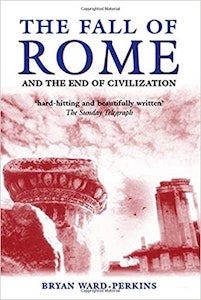
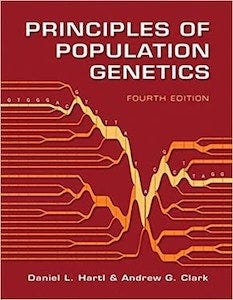
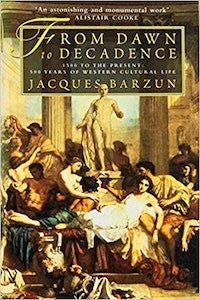
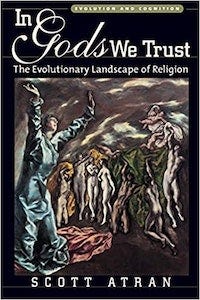
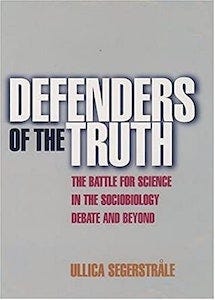
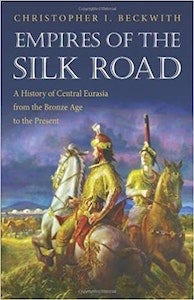
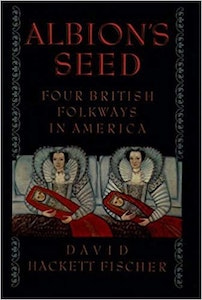
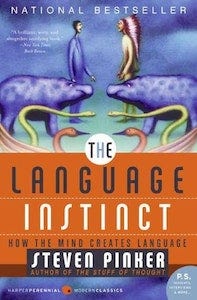
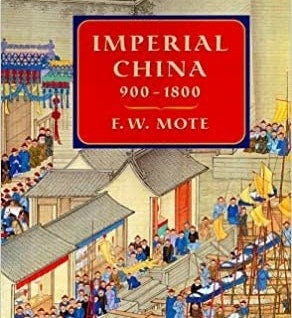
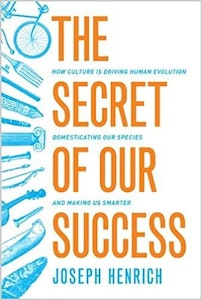
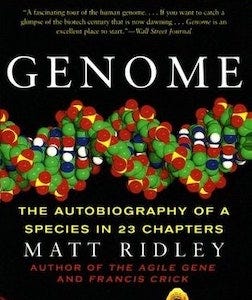
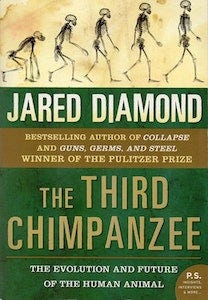
Rigoberta Menchú and the Story of All Poor Guatemalans by David Stoll (1999). The professor taught this in the context of being wary of intellectual decisions which lead to exchanging one set of facts for another.
An Area of Darkness by VS Naipaul (1964) modeled for me the tensions of a life lived as a skeptic and cosmopolitan.
Superforecasting: The Art and Science of Prediction by Phillip Tetlock (2015)--how I appear to be concise and accurate at work.
Testosterone: A Man's Guide by Nelson Vergel. Many editions but very good layman's review of literature. Probably the deepest grooves here and it is the least "intellectual" in this list.
Ratio by Michael Ruhlman. Basically destroys most western cuisine cookbooks with math and written by an author of them.
Starting Strength by Mark Rippetoe. Not the first barbell programming book but the clearest and most humorous.
James Scott's 'Seeing Like A State' has had a significant impact on how I look at the world and my work. I came away more deeply aware of the difference between the name of something and the knowing of it.
Like China, Africa is a very large place with a very long history. Unlike China, however, it's records and monuments are sparse. John Reader's 'Africa: A Biography of the Continent' did a great deal to get my head around the size and depth of the 'cradle of humanity'.